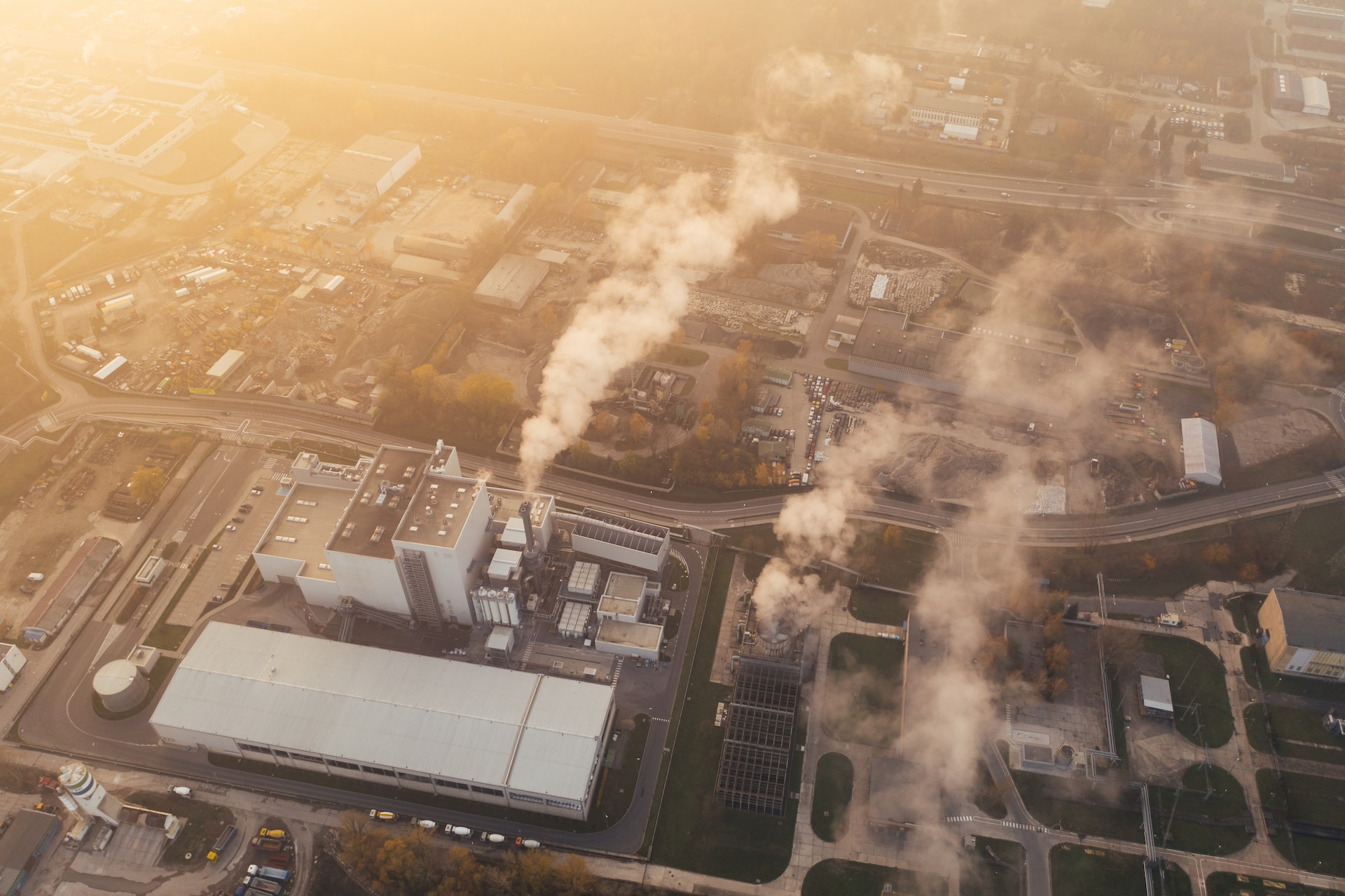How to Dispose of Cooking Oil Safely and Responsibly in the UK
Did you know that improper disposal of cooking oil can harm the environment and cause costly damage to sewer systems? In this blog post, we’ll guide you through the responsible process of how to dispose of cooking oil in the UK, helping you protect our planet and avoid potential legal consequences.
Short Summary
- Improper disposal of cooking oil can lead to environmental damage, sewer system blockages and legal penalties.
- Homeowners should cool and solidify used cooking oil before storing it in sealed containers for recycling or composting plant-based oils.
- Businesses must adhere to the Food Safety Act of 1990 regulations when disposing of cooking oil to protect public health, environment and their reputation.
The Consequences of Improper Cooking Oil Disposal
The consequences of improper cooking oil disposal are dire. Pouring used cooking oil down the sink or toilet can lead to severe environmental impacts, sewer system obstructions, and even legal ramifications in the UK.
Did you know that an estimated half a million tonnes of leftover cooking oil, fats, and greases are discharged into the UK sewer network annually? By understanding the consequences of improper disposal, we can take responsible actions to protect our environment, infrastructure, and ourselves.
Environmental impact
When used cooking oil is improperly disposed of, it can wreak havoc on our environment. Improper disposal techniques, such as pouring oil down the sink, can lead to significant damage to waterways and wildlife.
By recycling or disposing of used cooking oil in a responsible manner, we can do our part to minimize our environmental footprint and ensure that recycled cooking oil is put to good use.
Sewer system damage
Pouring cooking oil down sinks or toilets is a recipe for disaster. Cooking oil solidifies in water, which can lead to blocked pipes and severe damage to sewer systems. This can result in costly repairs and potential health hazards.
In fact, clogged sewers can lead to the formation of fatbergs, large accumulations of fat and solid waste that build up in sewer systems. By disposing of cooking oil properly, we can prevent these issues and protect our sewer infrastructure.
Legal consequences in the UK
UK businesses and homeowners must follow legal guidelines for cooking oil disposal to avoid fines and other penalties. Improper disposal of cooking oil can lead to:
- Spot fines
- Prosecution
- Significant fines
- Local authorities retrieving costs associated with incorrect disposal.
By adhering to these guidelines, we can ensure our compliance with the law and protect our environment.
Proper Cooking Oil Disposal for Homeowners
As homeowners, there are several steps we can take to dispose of cooking oil safely and responsibly. These steps include allowing the oil to cool and solidify, placing it in sealed containers, and composting plant-based oils.
By following these guidelines, we can minimize our environmental impact and protect our sewer systems from damage.
Cooling and solidifying
Before disposing of used cooking oil, it is essential to let it cool and solidify. This helps prevent leaks and spills that could cause damage to your trash bin or recycling container.
Once the cooking oil has cooled and solidified, you can pour cooking oil into a container, then scrape or lift the solidified oil from the frying pan or fryer and dispose of it safely.
Sealed containers
When disposing of old cooking oil that has cooled and solidified, it is crucial to place it in a sealed container, such as old plastic takeaway containers, bottles, or jars. This helps prevent leaks and spills during transport to a recycling center or disposal in the trash.
DO NOT pour frying oil into the toilet or drain. Some people popularised a way of disposing of cooking oil by pouring it and following up with boiling water. This was said to break down the oil. This is false. Even though hot water might seem to work in the initial pipes, later the oil solidifies anyway.
Composting plant-based oils
Did you know that small amounts of plant-based used cooking oils, such as vegetable oil, olive oil, or canola oil, can be composted? Composting these oils is an eco-friendly way to dispose of them without contributing to environmental pollution or sewer system damage.
However, it’s important to remember that synthetic oils, like motor oil, should not be included in compost.
Business Obligations for Cooking Oil Disposal
Businesses in the UK have specific obligations when it comes to cooking oil disposal. Proper storage, collection by licensed waste carriers, and exploring recycling options are all crucial steps to ensure compliance with regulations and protect the environment.
These steps must be taken to ensure that the oil is disposed of in a safe and responsible manner.
Storage requirements
Businesses in the food industry must store used cooking oil in designated, leak-free containers to comply with regulations and maintain hygiene standards. Appropriate storage containers may include:
- 20L cans
- 60L-200L barrels
- 1000L IBCs
- Designated storage tank
Collection by licensed waste carriers
To ensure proper disposal and recycling of used cooking oil, businesses must arrange for collection by a licensed waste carrier, rather than disposing of it in a general waste bin. These carriers are legally authorized to collect, transport, and dispose of waste in accordance with applicable regulations.
Businesses should ensure that the waste carrier they use is properly licensed and has the necessary permits.
Recycling options
Recycling used cooking oil can have numerous benefits, such as converting it into biofuels or other eco-friendly products. By exploring recycling options, businesses can contribute to a greener future and reduce their environmental impact.
How is cooking oil recycled?
Cooking oil can be recycled in several ways, and the process generally involves the following steps:
- Collection: Used cooking oil is collected from various sources such as restaurants, food manufacturers, and households. Some cities have drop-off locations where individuals can bring their used cooking oil. There are also companies that provide collection services for businesses that produce large amounts of used oil.
- Transportation: The collected oil is then transported to a recycling facility. It’s important that the oil is stored and transported in a way that prevents leaks and spills.
- Filtering and Processing: At the recycling facility, the oil undergoes a filtering process to remove any food particles, water, and other impurities. This results in a cleaner oil that can be further processed.
- Conversion: The clean oil can then be converted into various products. One of the most common uses for recycled cooking oil is biodiesel production. Biodiesel is a renewable source of energy that can be used in diesel engines. The process of converting cooking oil into biodiesel involves a chemical reaction known as transesterification, where the oil is mixed with an alcohol and a catalyst to produce biodiesel and glycerin.
- Use: The resulting biodiesel can be used in vehicles, generators, and other equipment that run on diesel fuel. It’s a more environmentally friendly alternative to traditional diesel fuel because it’s made from renewable resources and produces fewer greenhouse gas emissions.
In addition to biodiesel, recycled cooking oil can also be used to produce soap, animal feed, and other products. It’s a great example of how waste products can be repurposed and reused, contributing to a more sustainable and circular economy.
Creative Ways to Reuse Cooking Oil
Apart from proper disposal and recycling, there are also creative ways to reuse cooking oil. In this section, we will delve into biodiesel production, homemade soap, and oil lamps as ingenious methods for repurposing used cooking oil and other types of used oil.
Biodiesel production is a process that involves combining used cooking oil with methanol.
Biodiesel production
One way to repurpose used cooking oil is by converting it into biodiesel, a renewable and environmentally friendly fuel alternative. This process, known as transesterification, can help reduce dependence on fossil fuels and contribute to a greener future.
Homemade soap
Creating homemade soap is another creative way to reuse used cooking oil. By combining the oil with lye and other ingredients, you can produce an eco-friendly, chemical-free soap that is gentle on your skin. After the soap-making process, simply use a paper towel to clean up any spills or residue.
This soap is easy to make and can be customized with your favorite essential oils and herbs. You are the one.
Oil lamps
Repurposing used cooking oil into oil lamps is a sustainable lighting option that can be both functional and decorative. With just a container, wick, and metal top, you can create a unique and eco-friendly lamp that makes use of your leftover oil.
Finding a Registered Waste Carrier for Cooking Oil Disposal
When it comes to disposing of used cooking oil, it is crucial to find a registered waste carrier to ensure proper disposal and recycling. This involves searching for a carrier, obtaining waste transfer notes, and maintaining proper recordkeeping.
By taking the time to find a registered food waste recycling service at your local recycling centre, you can ensure that your used cooking oil is properly disposed of in a food waste bin.
Searching for a carrier
To locate a registered waste carrier in the UK, you can use the Environment Agency Public Registers to find licensed carriers, brokers, and dealers in your area. By contacting these registered carriers, you can arrange for your waste cooking oil disposal and ensure compliance with UK regulations.
Waste transfer notes
Waste transfer notes are essential documents provided by your waste carrier to monitor and trace the movement of waste oil from your business to the recycling facility. It is crucial to obtain these notes, sign them, and retain a copy for at least two years to demonstrate compliance with UK regulations.
Failure to do so could result in hefty fines and other penalties. It is important to ensure that it is ensured.
Recordkeeping
Proper recordkeeping is vital for demonstrating compliance with UK regulations on cooking oil disposal. Businesses must keep records of all oil collections legally for at least 6 years. This is a requirement they must abide by.
By keeping these records, you can ensure your business is following all legal requirements and managing waste oil in a secure and conscientious manner.
The Benefits of Recycling Cooking Oil
Recycling cooking oil has numerous benefits, including biofuel production, greenhouse gas reduction, and environmental protection. By recycling or properly disposing of used cooking oil, we can contribute to a cleaner, greener future and protect our planet from pollution.
Recycling cooking oil is an easy and effective way to reduce our environmental impact. It is.
Biofuel production
Recycling used cooking oil can lead to the production of biofuels, a renewable energy source that reduces dependence on fossil fuels. By converting used cooking oil into biofuels, we can help fight climate change and lessen our environmental impact.
Greenhouse gas reduction
By converting used cooking oil into biofuels, we can:
- Help reduce greenhouse gas emissions
- Combat climate change
- Benefit the environment
- Support the global effort to reduce our carbon footprint
- Transition towards cleaner energy sources.
Environmental protection
Proper disposal and recycling of cooking oil protect the environment by preventing pollution and sewer system damage. By taking the necessary steps to dispose of or recycle cooking oil responsibly, we can safeguard our environment and contribute to a sustainable future.
Food Safety Act Compliance and Penalties
It is crucial for businesses to comply with the Food Safety Act of 1990 and its guidelines for cooking oil disposal. In this section, we will explore:
- The importance of understanding these guidelines
- The penalties for non-compliance
- The significance of following regulations to protect the environment, public health, and your business’s reputation.
Understanding the guidelines is essential for businesses to ensure they are compliant with the law. Penalties for not doing so.
Guidelines overview
By familiarizing yourself with the Food Safety Act of 1990 and its guidelines for storing and disposing of cooking oil, you can ensure your business is compliant and operating within the law.
By adhering to these guidelines, you can protect your customers, the environment, and your business’s reputation.
Penalties for non-compliance
Failing to comply with the Food Safety Act of 1990 can result in significant penalties for businesses. Local authorities have the power to inspect your property, and if they find that regulations are being disregarded, they can impose fines or even suspend operations.
It is crucial to comply with these regulations to avoid such consequences and maintain your business’s reputation.
Importance of compliance
Complying with the Food Safety Act of 1990 is crucial for businesses in the UK. By adhering to the guidelines and regulations for cooking oil disposal, you can protect the environment, public health, and your business’ reputation.
Ensuring proper cooking oil disposal is not only a legal requirement, but also a responsibility to our planet and future generations.
Summary
In conclusion, responsible cooking oil disposal is essential for the protection of our environment, sewer systems, and public health. By adhering to the guidelines and regulations set forth by the Food Safety Act of 1990, businesses and homeowners alike can contribute to a greener, cleaner future. Whether you choose to recycle, repurpose, or dispose of your used cooking oil properly, remember that every small action can make a big difference in preserving our planet for generations to come.
Frequently Asked Questions
How do you dispose of fry oil?
Put cooled, used fry oil in a sealed container and discard it with regular garbage or place it in a labeled plastic bag and freeze it before disposing.
Can you put cooking oil in food bin?
Yes, you can put cooking oil in your food waste recycling bin, but only after it has cooled down and is put into a sealed plastic container.
If you don’t have access to food waste recycling services, the cooled oil should be disposed of in the general waste bin.
Can you pour cooking oil in the garden?
You can use cooled cooking oil as compost in your garden. However, only oil that was used to fry plant-based products is applicable.
What are the consequences of improper cooking oil disposal?
Improper cooking oil disposal can result in environmental damage, sewer blockages, and legal ramifications.
The environmental damage can include water contamination, soil contamination, and air pollution. Sewer blockages can lead to flooding and other costly repairs. Legal ramifications can include fines and other penalties.
How can I locate a registered waste carrier for cooking oil disposal?
To locate a registered waste carrier for cooking oil disposal, use the Environment Agency Public Registers to search for licensed carriers in your area.





